This list is not meant to assess the thousands of Christian books published each year, let alone every interesting book published in 2014. I read a lot of books, but there are plenty of worthy titles that I never touch (and never hear of). This is simply a list of the books (Christian and non-Christian, but all non-fiction) that I thought were the best in the past year (including the last months of 2013).
When I say “best” I have several questions in mind:
• Was this book well written and enjoyable to read?
• Did I find it personally challenging, illuminating, edifying, or entertaining?
• Is it a book I am likely to reread or consult often?
• Do I see myself frequently recommending this book to others?
Undoubtedly, the “best” books reflect my interests and inklings. This doesn’t mean I agree with every point in all these books, but it does mean I found them helpful and insightful. There is nothing scientific about my list, but here goes:
Honorable Mentions:
Adam T. Barr and Ron Citlau, Compassion Without Compromise: How the Gospel Frees Us to Love Our Gay Friends Without Losing the Truth (Bethany House)
Daniel I. Block, For the Glory of God: Recovering a Biblical Theology of Worship (Baker Academic)
Andrew B. McGowan, Ancient Christian Worship: Early Church Practices in Social, Historical, and Theological Perspective (Baker Academic)
Top Ten
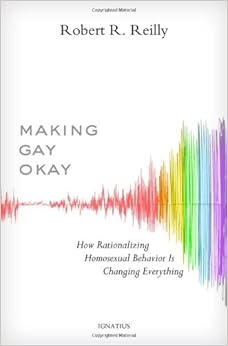 10. Robert R. Reilly, Making Gay Okay: How Rationalizing Homosexual Behavior Is Changing Everything (Ignatius). A frank and unsparing examination of the push to legitimize homosexual behavior in science, in law, in education, in the military, and in the political process. Eye opening.
10. Robert R. Reilly, Making Gay Okay: How Rationalizing Homosexual Behavior Is Changing Everything (Ignatius). A frank and unsparing examination of the push to legitimize homosexual behavior in science, in law, in education, in the military, and in the political process. Eye opening.
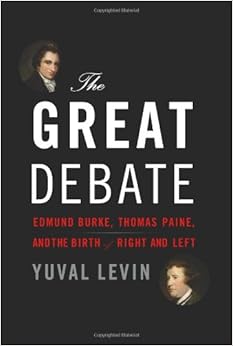 9. Yuval Levin, The Great Debate: Edmund Burke, Thomas Paine, and the Birth of Right and Left (Basic Books). Akin to Thomas Sowell’s Conflict of Visions, Levin shows how issues like justice, nature, history, order, and reason can be understood differently depending on your frame of reference. Although himself a man of the right, this is not a partisan book. Levin’s analysis is evenhanded and judicious.
9. Yuval Levin, The Great Debate: Edmund Burke, Thomas Paine, and the Birth of Right and Left (Basic Books). Akin to Thomas Sowell’s Conflict of Visions, Levin shows how issues like justice, nature, history, order, and reason can be understood differently depending on your frame of reference. Although himself a man of the right, this is not a partisan book. Levin’s analysis is evenhanded and judicious.
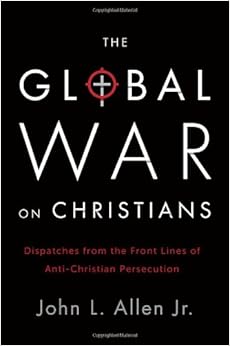 8. John L. Allen Jr., The Global War on Christians: Dispatches from the Front Lines of Anti-Christian Persecution (Image). Although many people still think of Christianity as a powerful agent of repression in the world, Allen shows that from a global perspective, Christians are much more the oppressed than the oppressor. Read, weep, pray, act.
8. John L. Allen Jr., The Global War on Christians: Dispatches from the Front Lines of Anti-Christian Persecution (Image). Although many people still think of Christianity as a powerful agent of repression in the world, Allen shows that from a global perspective, Christians are much more the oppressed than the oppressor. Read, weep, pray, act.
 7. Jonathan Witt and Jay W. Richards, The Hobbit Party: The Vision of Freedom that Tolkien Got, and the West Forgot (Ignatius). More people should be talking about this book. It’s full of excellent background information on Tolkien and the worldview that shaped his creation of Middle Earth. Even LOTR enthusiasts will see things they hadn’t seen before.
7. Jonathan Witt and Jay W. Richards, The Hobbit Party: The Vision of Freedom that Tolkien Got, and the West Forgot (Ignatius). More people should be talking about this book. It’s full of excellent background information on Tolkien and the worldview that shaped his creation of Middle Earth. Even LOTR enthusiasts will see things they hadn’t seen before.
 6. Anthony Esolen, Defending Marriage: Twelve Arguments for Sanity (Saint Benedict Press). Exceptionally well written and full of cogent arguments (including some you may not have considered). This is not a book on Scripture or scientific research, but a deft cultural analysis that makes sanity look sane again.
6. Anthony Esolen, Defending Marriage: Twelve Arguments for Sanity (Saint Benedict Press). Exceptionally well written and full of cogent arguments (including some you may not have considered). This is not a book on Scripture or scientific research, but a deft cultural analysis that makes sanity look sane again.
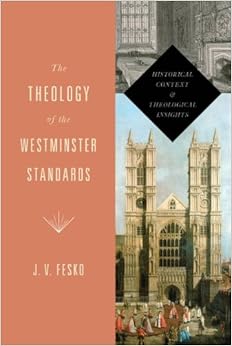 5. J.V. Fesko, The Theology of the Westminster Standards: Historical Context and Theological Insights (Crossway). The last few years have a seen a steady stream of high quality books on the Westminster Standards. This is one of the best–theologically nuanced and historically sensitive. Less scholarly, but more accessible, is the volume by Chad Van Dixhoorn, Confessing the Faith: A Reader’s Guide to the Westminster Confession of Faith (Banner of Truth). I haven’t had the opportunity to read Van Dixhoorn’s book yet, or it would likely be in my top ten.
5. J.V. Fesko, The Theology of the Westminster Standards: Historical Context and Theological Insights (Crossway). The last few years have a seen a steady stream of high quality books on the Westminster Standards. This is one of the best–theologically nuanced and historically sensitive. Less scholarly, but more accessible, is the volume by Chad Van Dixhoorn, Confessing the Faith: A Reader’s Guide to the Westminster Confession of Faith (Banner of Truth). I haven’t had the opportunity to read Van Dixhoorn’s book yet, or it would likely be in my top ten.
 4. Thomas S. Kidd, George Whitefield: America’s Spiritual Founding Father (Yale). Scholarly yet readable; detailed yet not overwhelming. I expect this edifying and instructive book will be used for a long time by serious Christians and interested academics.
4. Thomas S. Kidd, George Whitefield: America’s Spiritual Founding Father (Yale). Scholarly yet readable; detailed yet not overwhelming. I expect this edifying and instructive book will be used for a long time by serious Christians and interested academics.
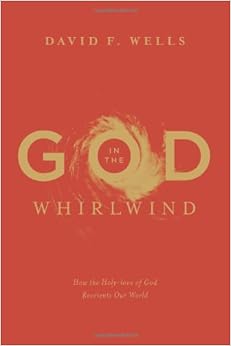 3. David F. Wells, God in the Whirlwind: How the Holy-love of God Reorients Our World (Crossway). After years of pointing out the shallowness of evangelicalism, this is Well’s masterful summary of what should be our depth, our ballast, our center. If you’ve never read David Wells before, you can now start here.
3. David F. Wells, God in the Whirlwind: How the Holy-love of God Reorients Our World (Crossway). After years of pointing out the shallowness of evangelicalism, this is Well’s masterful summary of what should be our depth, our ballast, our center. If you’ve never read David Wells before, you can now start here.
 2. David Helm, Expositional Preaching: How We Speak God’s Word Today (Crossway). This little book is simply outstanding. It’s the best short book on preaching I’ve read. Helm’s advice is unfailingly wise, theologically informed, and extremely practical.
2. David Helm, Expositional Preaching: How We Speak God’s Word Today (Crossway). This little book is simply outstanding. It’s the best short book on preaching I’ve read. Helm’s advice is unfailingly wise, theologically informed, and extremely practical.
 1. Reformed Confessions of the 16th and 17th Centuries in English Translation, Four Volumes (Reformation Heritage books). Although this set has been around for several years, the fourth and final volume was only published this last year. The result: a remarkable collection of 127 Reformed confessions from 1523-1693. While the Westminster Standards and the Three Forms of Unity may be the most well known, the other 100+ documents must not be ignored. These four volumes are full of rich theology and history. Pastors, raid your book budget and get this invaluable resource in your study.
1. Reformed Confessions of the 16th and 17th Centuries in English Translation, Four Volumes (Reformation Heritage books). Although this set has been around for several years, the fourth and final volume was only published this last year. The result: a remarkable collection of 127 Reformed confessions from 1523-1693. While the Westminster Standards and the Three Forms of Unity may be the most well known, the other 100+ documents must not be ignored. These four volumes are full of rich theology and history. Pastors, raid your book budget and get this invaluable resource in your study.


















